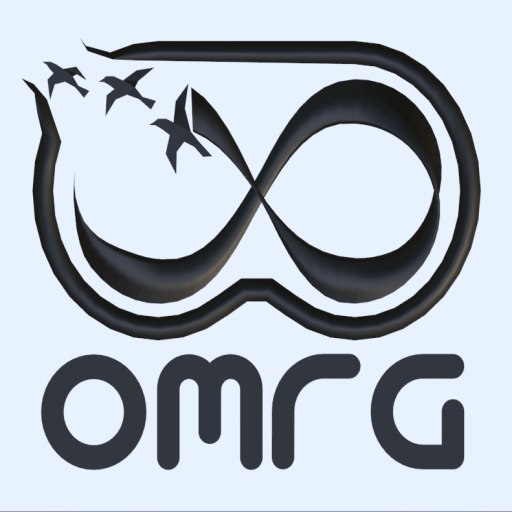Main Page
From Open Metaverse Wiki
Welcome to the Open Metaverse Wiki
About This Wiki
- This wiki is presented by the Open Metaverse Research Group, a not-for-profit group of volunteers who are active in virtual worlds and deeply interested in supporting the development of an interoperable, scalable, non-proprietary metaverse based on existing and still to be developed "grids" or whatever succeeds the grid concept of metaverse elements.
About Us
- Our group is called the Open Metaverse Research Group. See our About Us page for more details.
Group Meetings
- The OMRG group meets every Friday at 1pm Pacific Time in the Autumn Castle region of Kitely.com. You can read our Meeting Agendas here and you can make suggestions to add agenda items, so you can come to the meetings prepared. Meeting transcripts are available on our email list serve you can subscribe to here.
- Meeting Agendas < can be found here. We will archive past agendas and make a page for the agenda of each new meeting. All are encouraged to participate in contributing to the agendas.
A Preliminary Outline
- This mindmap is presented as a conversation-starter. It also has been suggested as an outline for this wiki. The following sections are based on this mindmap.
Error creating thumbnail: File missing
Concepts
- Basic Precepts
- OpenSource: The backbone of an open metaverse must be open source and built to enable many types of applications (VR/VW/AR/XR) to run on top of it, like HTML and to a lesser extent, VRML were intended.
- Standards-based: Creating standards for an open sourced backbone, as well as for applications that run on it, are helpful to build trust in the code people are interacting with.
- Interoperable: All operating systems must be able to access and use the backbone open metaverse service provided they have internet access by any means.
- Protective of Privacy: The rights of the user to privacy, to be forgotten, to keeping their communications secure and encrypted without back doors, is sacrosanct.
- Requirements
- Decentralized Data: Data should not be controlled by any centralized system. This eliminates all centralized database systems from consideration, as well as proprietary ownership of the backbone.
- Standards: Standards developed in a public way that is open to public comment ensures that the general public is fully informed to buy into the new system.
- Non-proprietary: Making the backbone non-proprietary and distributed widely with many nodes handling transactions ensures continuity of the metaverse regardless of the fiscal or organizational health of any one group.
- Data privacy: Using public key encryption of long key length to be resistant not only to botnet brute force attacks but against quantum computer attacks is essential to ensuring privacy of user data.
- Structure
- Interconnected independent grids: Proprietary grid/platform operators are all able to use the same backbone independently and fairly, building their own stake in the system and earning revenues from operating backbone nodes.
- Geography-based: Users, and platforms built atop the backbone will obviously use the closest resources possible to ensure the lowest latency virtual experience, but the infrastructure of the network needs to be built in ways that help ensure latency is minimized for even the most remote users to encourage ease of access.
- Basic Precepts
Mechanics
- Web-based 2D
- Web3
- 3D Virtual Worlds
- VR Head-Mounted Displays (HMDs)
- Haptics
- Implants
- Named-data
- non-TCP/IP
- Identity verification
- Viewer Engines
- Blockchain
TimeLine
- History
- Inception
- Early Attempts
- History
- Present
- Legacy versions
- Fragmentation
- Research
- Planning
- Present
- Future
About the Metaverse
- <youtube>https://www.youtube.com/watch?v=ZSgitLzAIis</youtube>
Links about the Metaverse
Articles
- Venture Beat interview w/Neal Stephenson
- FastCompany article about Neal Stephenson's vision
- Economist's Metaverse Summit interview with Neal Stephenson
- 1st Lamina1 Discord AMA 21 July 2022
- The Metaverse Needs an Operating System article by Metanomic CEO, Theo Priestly
- The Metaverse Needs an Operating System, Part 2
- Web3, Interoperability and the Metaverse by Jon Radoff, 22 Nov 2021
- Glossary of the Metaverse by Jon Radoff
- Next Billion Seconds podcast by Tony Parisi & Mark Pesce
- especially see the series about "History of the Metaverse"
- Open source Metaverse project on SourceForge
- 12 Theses on the Metaverse by Patrik Schumacher
- FastCompany article on OpenSim from Jan 2022
- Metaverse Interoperability: Part 1 by Jon Radoff, 24 Jan 2022
- XR Safety Initiative Privacy and Safety Framework from XRSI.org
- UL.org Research's Deb Prince announces Metaverse Standard in development under 8400 for Virtual Reality, Augmented Reality and Mixed Reality at MetaverseSafetyWeek [UL's first standard for fire doors was created in 1903 and is still in use today]
- Hypergridbusiness.com - Reports and resources on interoperability in the Metaverse
Other Organizations
- Lamina1
- Neal Stephenson's proposed new enty to the "open metaverse", by the inventer of the term
- "... the initial Alpha will be an API backed by existing storage providers, with a technology roadmap focused on getting more fully decentralized as an option for creators that want this." -- Michael, Lamina1CM on Discord
- Open Metaverse Conference Feb. 2023 in Los Angeles, California
- organized by Lamina1
- Neal Stephenson's proposed new enty to the "open metaverse", by the inventer of the term
- Open Metaverse Foundation
- The Metaverse Standards Forum
- Metaverse Foundation & Blockchain
- Open Metaverse Interoperability Group
